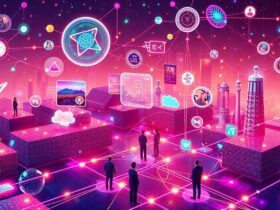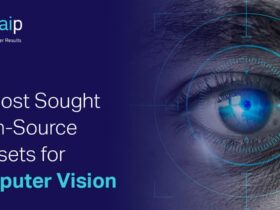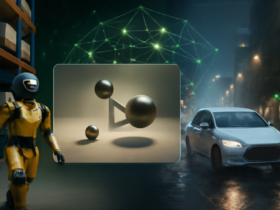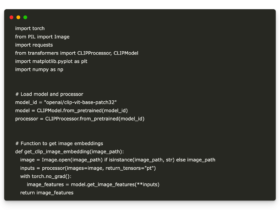The healthcare industry has always been at the forefront of technological innovation, from the invention of pacemakers and X-rays to the adoption of electronic health records. Now, Artificial Intelligence (AI) and its allied technologies, such as machine learning, deep learning, and generative AI, are driving the next wave of transformation. Generative AI, in particular, is emerging as a powerful tool with the potential to revolutionize how healthcare is delivered, managed, and experienced.
The Rise of Generative AI in Healthcare
Generative AI refers to a class of AI models that can generate new, realistic data instances that resemble their training data. Unlike traditional AI, which focuses on analyzing and predicting outcomes, generative AI can create novel content, such as images, text, and even synthetic data.
In healthcare, generative AI is being applied to a wide range of use cases, from drug discovery and personalized medicine to medical imaging and patient care. It enhances traditional machine learning applications and opens new possibilities for innovation.
Key Benefits of Generative AI in Healthcare
- Accelerated Drug Discovery: One of the most promising applications of generative AI is in drug discovery. Traditional drug development is a lengthy and expensive process, often taking years and costing billions of dollars. Generative AI can accelerate this process by:


- Designing Novel Drug Candidates: Generative models can create new molecular structures with desired properties, potentially leading to more effective and targeted therapies.
- Predicting Drug Interactions: AI can predict how different drugs will interact with the human body, helping researchers identify potential side effects and optimize dosages.
- Simulating Clinical Trials: Generative AI can simulate clinical trials using synthetic patient data, reducing the need for large-scale human trials and speeding up the approval process.
- Personalized Medicine: Generative AI can analyze vast amounts of patient data to create personalized treatment plans tailored to individual needs. This includes:
- Predictive Insights: Machine learning models churn out prescriptive and predictive insights that help in organizational and administrative tasks such as patient and bed management, remote monitoring, and duty roster creation.
- Customized Therapies: By analyzing a patient’s genetic makeup, medical history, and lifestyle, generative AI can recommend the most effective treatments and therapies.
- AI-Powered Diagnostics: Generative models can analyze medical images, such as X-rays and MRIs, to detect diseases and anomalies with greater accuracy and speed.
- Enhanced Medical Imaging: Generative AI is transforming medical imaging by:


- Generating High-Resolution Images: AI can enhance the resolution of medical images, making it easier for doctors to detect subtle abnormalities.
- Creating Synthetic Images: Generative models can create synthetic medical images for training AI algorithms, reducing the need for real patient data and protecting patient privacy.
- Improving Image Reconstruction: AI can improve the accuracy and speed of image reconstruction, allowing doctors to visualize internal organs and tissues in greater detail.
- Improved Patient Care: Generative AI is improving patient care by:
- AI-Driven Diagnostics: Generative AI excels in early disease detection and efficient diagnosis. Trained on extensive computer vision datasets, these models can spot subtle anomalies in the human body, enabling timely intervention.
- Virtual Assistants: AI-powered virtual assistants can provide patients with personalized support and guidance, answering questions, scheduling appointments, and monitoring their health.
- Mental Health Support: Generative AI can create virtual therapists and counselors, providing patients with access to mental health support anytime, anywhere.
- Behavioral Modification: Machine learning models analyze bodily gestures and behaviors to recommend lifestyle changes, promoting overall well-being. Wearables and apps can provide real-time feedback to improve posture and encourage physical activity.
- Efficient Management of Health Records: Machine learning automates the updating of electronic health records, even from offline sources through handwriting detection, ensuring healthcare professionals have timely access to centralized patient data.
- Diabetes Detection: AI algorithms, such as Naive Bayes and decision trees, process health data to predict the onset of diabetes by analyzing factors like age, lifestyle, and diet. These algorithms can also accurately detect liver diseases.
Real-World Applications of Machine Learning and Generative AI


- Drug and Medication Discovery: Machine learning accelerates the development of medications for major diseases. Through simulated clinical trials, sequencing, and pattern detection, companies fast-track experimentation and observation. Generative AI is also contributing to unconventional therapies.
- Disease Detection and Efficient Diagnosis:
- AI-Driven Diagnostics: Generative AI excels in early disease detection and efficient diagnosis. Trained on extensive computer vision datasets, these models can spot subtle anomalies in the human body, enabling timely intervention. IBM Watson Genomic, for example, uses cognitive computing for faster and more effective genome-driven sequencing.
- Mental Health Support:
- AI-Powered Therapy: Generative AI creates virtual therapists providing personalized mental health support anytime, anywhere.
- Behavioral Modification:
- Wearable Technology: Machine learning models analyze bodily gestures and behaviors to recommend lifestyle changes, promoting overall well-being. Wearables and apps can provide real-time feedback to improve posture and encourage physical activity.
Challenges and Considerations
Despite the immense potential of generative AI in healthcare, there are several challenges and considerations that need to be addressed:
- Data Privacy and Security: Generative AI models require large amounts of data to train, raising concerns about patient privacy and data security.
- Ethical Considerations: The use of generative AI in healthcare raises ethical questions about bias, fairness, and accountability.
- Regulatory Frameworks: Clear regulatory frameworks are needed to govern the development and deployment of generative AI in healthcare.
- Integration with Existing Systems: Integrating generative AI into existing healthcare systems can be complex and require significant investment.
The Future of Healthcare with Generative AI
Generative AI is poised to revolutionize healthcare, offering new ways to diagnose, treat, and prevent diseases. As the technology continues to evolve, we can expect to see even more innovative applications emerge, transforming the way healthcare is delivered and experienced. Machine learning is significantly reducing the time required for humans to reach the next phase of evolution. With more use cases, experiments, and applications, we could be discussing how cancer has been cured or how a devastating pandemic was avoided due to a simple smartphone app in the coming years.
Conclusion
Generative AI is transforming healthcare by accelerating drug discovery, enabling personalized medicine, enhancing medical imaging, and improving patient care. By leveraging the power of generative AI, healthcare organizations can improve patient outcomes, reduce costs, and drive innovation. As AI continues to evolve, its impact on healthcare will only continue to grow, promising a future where healthcare is more personalized, efficient, and effective.












Leave a Reply